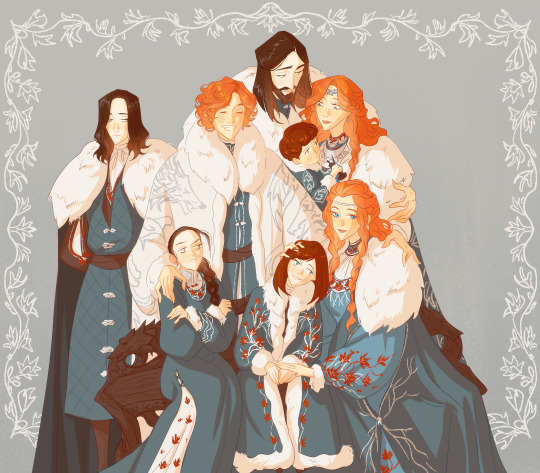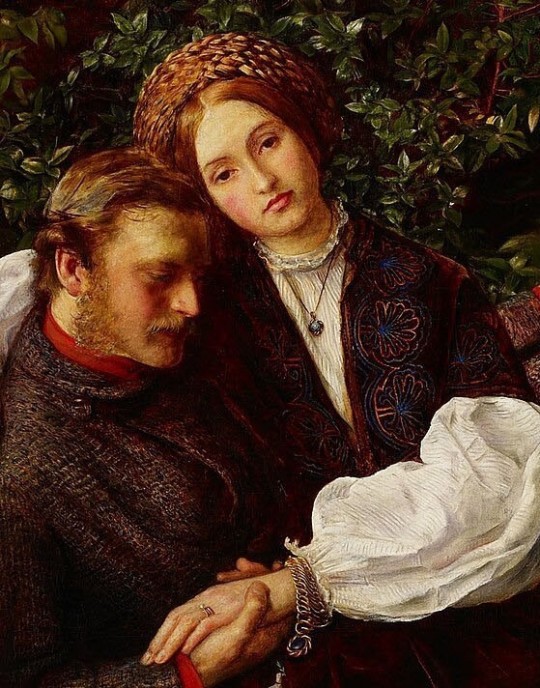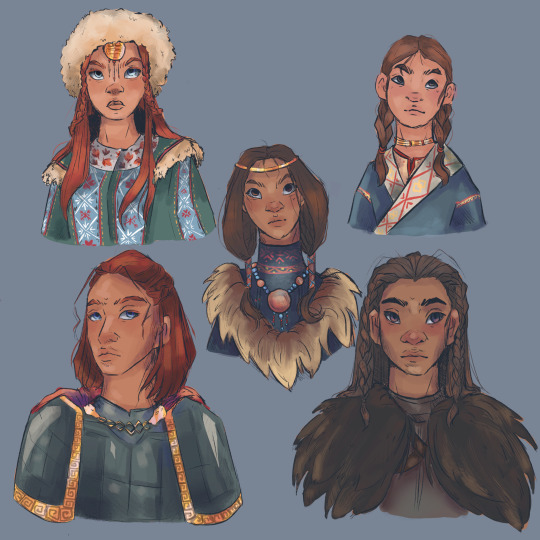#John-Throne
Explore tagged Tumblr posts
Text
Demisexual? No, you misheard. I said Dummysexual. I'm attracted to that moron over there. Look at them. They just tripped over nothing and set the house on fire. I'm in love.
#marvel#arcane#dc#star wars#the mandalorian#castlevania#avatar#doctor who#game of thrones#ghosts#good omens#house of the dragon#the last of us#lucifer#merlin#moon knight#once upon a time#red vs blue#rwby#the sandman#shadow and bone#stranger things#supernatural#the umbrella academy#vox machina#wwdits#the witcher#john wick#lotr#the hobbit
9K notes
·
View notes
Text
Y’all ever read such a good fic with a nice plot just with so many spelling errors?!? Like TF you mean he was “grinong” in her ear or “taiek” her by the waist??
#bridgerton x reader#kit connor x reader#cameron monaghan x reader#cal kestis x reader#five hargreeves imagine#five hargreeves#rafe imagine#rafe cameron x reader#rafe cameron x black!reader#paul mescal x reader#rodrick heffley x reader#johnny utah x reader#john constantine x reader#henry cavill x reader#henry danger x reader#henry hart x reader#henry fox x reader#duncan taylor x reader#aaron taylor johnson x reader#taylor zakhar perez x reader#henry mills x reader#game of thrones x reader#hotd x reader#cooper howard x reader#hotd imagine#heartstopper x reader#arcane#salo arcane x reader#arcane x reader
1K notes
·
View notes
Text

House Stark. New fanart family portrait from ASOIAF. My favorite cute beans.
#artists on tumblr#fantasy art#illustrators on tumblr#illustration#fanart#house stark#asoif/got#asoif fanart#asoiaf#game of thrones#sansa stark#arya stark#john snow#robb stark#bran stark#rickon stark#ned stark#catelyn stark
8K notes
·
View notes
Text

Paradise Lost: Satan in Council (1866/steel engraving) - Gustave Doré
1K notes
·
View notes
Text
nothing says foreplay quite like smiling with a mouth full of blood
#I am unwell and also ovulating#like yes please smile laciviously at me while blood drips down your chin#no one should be surprised at this stage#this has me feral in very real and concerning ways#könig x reader#konig x reader#konig#simon ghost riley#daryl dixon#cod x y/n#cod modern warfare#cod mw2#cod mwii#cod mw3#ghost#redacted sam#john soap mactavish#simon riley smut#redacted porter#redacted vincent#joel miller#dean winchester#throne of glass#acotar#john price#enemies to lovers#killing eve#villaneve#astarion#bg3
283 notes
·
View notes
Text


1982's Fantastic Four Vol.1 #247 page 1 by writer/artist/inker John Byrne, colorist Glynis Wein and letterer Jim Novak. Source Source
#Doctor Doom#This land is mine !#John Byrne#Fantastic Four#1980s comics#John Byrne's FF#splash page#original art#John Byrne's Fantastic Four#marvel#marvel comics#comics#80s#cool comic art#80's#1980s#1982#Docteur Fatalis#Marvel Comics of the 1980s#super villain#taking his throne back#ruler#king once more#Dr Doom vs Zorba#Jim Shooter era#woah#Dr Doom#the man in the iron mask#badass dude#That time Doctor Doom & the FF teamed up against King Zorba
282 notes
·
View notes
Note
Valyrian is impressively complicated and difficult to learn, is it so complicated on purpose or did it surprise you with how complicated it turned out?
When it comes to complexity and language, any complexity you add to the morphology is complexity you take away from the syntax, and vice-versa. For example, when you learn all the noun cases of Finnish, it buys you having to remember fewer constructions with adpositions—or fewer verb augmentations, if the language went that way.
Syntactically, Valyrian is usually (MODIFIER) NOMINATIVE-NOUN (MODIFIER) OTHER-CASE-NOUN* (ADVERB) VERB. It's quite simple. There's not a lot you have to remember, and things can move around a little bit, if it feels right. You don't have to remember a ton of auxiliaries with different applications and slightly different usages. For the most part the heavy hitters (the nouns and verbs themselves) take care of things rather nicely. This is what complexity within the words themselves buys you: simplicity elsewhere.
The reason you get this is because all languages are doing the same thing: describing human experience. And humans are the same language to language. The other small tidbit is that when creating a naturalistic language—and it doesn't matter what method you use—you are, unconsciously or not, aiming for the lowest common denominator in terms of grammatical complexity. You don't have to do that, but generally if you're trying to create a language for humans with no other goals, you do. With a language like Ithkuil, John was intentionally pushing away from what is standard in human languages, and so there are needless levels of complexity that push beyond the boundaries of ordinary human language.
Now, when I say "needless", this is what I mean.
In Turkish, if you want to say "The girl is reading a book", you say:
Kız kitap okuyor.
Turkish is a language with noun cases, but you only see the nominative here. Why? Because the girl is reading A book. When the object is indefinite in Turksih you don't need to use the accusative case—in fact, you shouldn't. If you wanted to say "The girl is reading the book", that's when the accusative case pops up:
Kız kitabı okuyor.
Okay, with this in mind, you've introduced—just in the nouns—four possibilities:
Nominative + indefinite
Nominative + definite
Accusative + indefinite
Accusative + definite
In a maximally complex language, all of this would be marked. In Turkish, only one of these is marked. (Well, maybe two, if you were to say Bir kız for nominative + indefinite. Turkish has an indefinite article that pops up sometimes.) Certainly there are languages where all of these have some sort of marking, but then those very same languages will have other situations where maximal marking is possible but not present.
Human languages all have this in common. There are areas in the language where more categories could be marked but are not. It doesn't matter what the language is. This is because humans have limits for how much junk they'll tolerate in the language they're using. It isn't long before something that could be inferred from context is inferred from context. It collapses every so often (i.e. too little is marked and so marking pops up), but the unconscious goal is for the language to have a balance between morphological and syntactic complexity and also explicitness and implicitness.
A language doesn't have to do this, though, and so conlangs can be more or less explicit/implicit. Can they work? Certainly, but they may be more than humans will comfortably tolerate, and so humans may not want to use them.
Take Láadan, for example. Had Láadan been created later it might have had a better shot at being used, but this was 1982 before conlangers had started getting together. Láadan primary flaw is that it's trying to be a deep philosophical experiment while also trying to be a language a lot of people speak. That was never going to work. Suzette Haden Elgin lamented that maybe women didn't want a language of their own to use, and so the experiment was doomed from the start. A simpler explanation is she saw an ocean and built a train to cross it.
In Láadan, every sentence begins with one of six speech act particles (copied from Wikipedia):
Bíi: Indicates a declarative sentence (usually optional)
Báa: ndicates a question
Bó: Indicates a command; very rare, except to small children
Bóo: Indicates a request; this is the usual imperative/"command" form
Bé: Indicates a promise
Bée: Indicates a warning
And then in addition to that, every sentence ends with one of the following (also copied from Wikipedia):
wa: Known to speaker because perceived by speaker, externally or internally
wi: Known to speaker because self-evident
we: Perceived by speaker in a dream
wáa: Assumed true by speaker because speaker trusts source
waá: Assumed false by speaker because speaker distrusts source; if evil intent by the source is also assumed, the form is waálh
wo: Imagined or invented by speaker, hypothetical
wóo: Used to indicate that the speaker states a total lack of knowledge as to the validity of the matter
This is too much! Evidential systems in language exist, but they are so much smaller than this, and usually the markers pull double duty—and there's often a null marker.
Again, though, it's about the goals! This is fine for a philosophical language. And if it was simply a philosophical language, then how many people "speak" it is irrelevant. For example, John Quijada doesn't lament that after twenty years there isn't a community of Ithkuil speakers—indeed, he's baffled whenever he hears of someone who wants to try to "speak" Ithkuil. It's not designed for that, and so the metric isn't a fair one. Based on the structure of Láadan, I'd argue the same: the number of speakers/users isn't a fair metric, and shouldn't have been a design goal. Because while a language like High Valyrian looks more complex, with its declension classes and conjugations, Láadan is more complex in that it exceeds the expectations of explicitness a human user expects from a language.
Long answer to the question, but no, High Valyrian ended up as complex as I intended, and I don't think it's more complex than one would expect from either a natural or naturalistic language.
#conlang#language#valyrian#high valyrian#hbo#game of thrones#got#hotd#house of the dragon#native tongue#she#suzette haden elgin#laadan#láadan#ithkuil#john quijada#philosophical language#grammar#turkish
209 notes
·
View notes
Text

Otto Hightower and his wife, Alyrie Florent ASOIAF as historical paintings (26/∞)
Peace Concluded, 1856 John Everett Millais
#valyrianscrolls#hotd#otto hightower#alyrie florent#house hightower#house of the dragon#asoiaf#asoiaf/got#asoiaf + historic art#a song of ice and fire#game of thrones#asoiaf art#💮💮#art#painting#john everett millais#'you look so much like your mother in certain lights'#my headcanon is alyrie has red hair too
145 notes
·
View notes
Text
Characters, book, and author names under the cut
Damianos (“Damen”) of Akielos/Laurent of Vere - Captive Prince by C.S. Pacat
Rhy Maresh/Alucard Emery - Shades of Magic by V. E. Schwab
Addam Saint Nicholas/Rune Saint John - The Tarot Sequence by K. D. Edwards
Neil Josten/Andrew Minyard - All For The Game by Nora Sakavic
#Lamen#Damianos of Akielos#Damen of Akielos#Laurent of Vere#Captive Prince#Capri#C.S. Pacat#Rhy Maresh#Alucard Emery#Shades of Magic#Shades of Magic Series#A Darker Shade of Magic#adsom#V. E. Schwab#Addam Saint Nicholas#Addam St Nicholas#Rune Saint John#Rune St John#The Tarot Sequence#The Hourglass Throne#tts#the last sun#tls#K. D. Edwards#Neil Josten#Andrew Minyard#All for the Game#Nora Sakavic#andriel#aftg
390 notes
·
View notes
Text
Me before writing this GOT fic: this will mostly be about Sansa, my main squeeze, my best girl and beloved
Me while writing this GOT fic: so instead of the whole dumb shit that happens to Daenerys in seasons 5 & 6 what if instead she’s presiding over Meereen while it invents democracy so it can vote her out of the city. Along the way Meereen invents journalism and soccer.
#they will vote her out with love#but like… Daenerys’s whole relationship with ‘consent of the governed’ is SO WEIRD#and I would love for a story to actually have her walking her talk in re: ‘Meereen (and Yunkai and Astapor) should choose their own leaders#also lbr we all deserve some Game Of Thrones 1776 nonsense in our lives#starring Daenerys as BOTH John Hancock and King George#maybe a little of G Washington too#anyway this outline is already 130 pages#pray 4 me#game of thrones motherfuckers
313 notes
·
View notes
Text
My versions of the Starks. I might redraw Robb one day and i was to lazy to draw Rickon.

This took abaut 5 hours on Kritta.
#fanart#a song of ice and fire#asoiaf#asoiaf fanart#digital art#sansa stark#john snow#arya stark#game of thrones#the starks#got fanart#aegon targaryen#asoiaf art#bran stark
776 notes
·
View notes
Text

From Aegon V to Aerys II
Almost the end of the dragon’s line
-> Duncan the Tall’s heraldry in the corner
-> Vhagar as the dragon representing the next generations
-> Daeron and Jeremy Norridge sharing the same earrings, who previously belonged to Aelor and Aelora
-> Shaera is wearing Helaena’s crown, while Rhaella’s is a brand new one made for her
-> Rhaelle is wearing Jena Dondarrion’s headpiece
#my art#fanart#game of thrones#asoiaf#got#hotd#targaryen#dragon#aegon v targaryen#a knight of the seven kingdoms#hedge knight#betha blackwood#jenny of oldstones#duncan the tall#Duncan Targaryen#jaehaerys ii targaryen#shaera targaryen#daemon ii blackfyre#ser John the fiddler#rhaella targaryen#aerys ii targaryen#rhaelle targaryen#Baratheon#Jeremy norridge#Steffon Baratheon#ormund Baratheon#Lyonel baratheon
103 notes
·
View notes
Text
diana gabaldon pulled out grrm on her blog and said that the showrunners of outlander completely ignored her and went against her wishes and that’s why now we have this mess and since she hasn’t written the last book yet we will have a show-original ending. it’s so joever.



#game of thrones ahh ending#it was fun while it lasted#outlander#outlander s8#lord john grey#jamie fraser#claire fraser#outlander books
72 notes
·
View notes
Text

A bit of an oldie now that I’ve always been fond of. Rune Saint John from The Tarot Sequence by KD Edwards.
Bluesky
Instagram
#the tarot sequence#art#my art#artists on tumblr#rune saint john#tarot cards#the sun#the last sun#the hanged man#the hourglass throne
39 notes
·
View notes
Text

Day 14 - Frost ❄️👨👩👧
In the frost of the North, two souls found warmth 🫶
Needed to draw something cute for this one!! (I have more angst planned......) And I wasn't feeling drawing the Night King 🥸
#art#fanart#illustration#got#got fanart#got art#game of thrones fanart#game of thrones art#game of thrones#inktober#samwell tarly#gilly#samwell tarly fanart#john bradley#hannah murray
137 notes
·
View notes
Note
"In some such families, brothers practiced what is known as temporary marriages, where several brothers would marry a single wife, who would bear heirs to all of them in turn. While the Roman ideology of the univira, a woman's devotion to one husband, seems at odds with the practice of temporary marriage, the way Crassus stepped into his brother's marriage suggests that his family may have opted to allow only two sons to marry in order to secure the family's future. When his brother died, Crassus took the opportunity to move from uncle to husband, a move that may have served his own interests as well as fraternal pietas."
[The brothers of Romulus: fraternal Pietas in Roman law, literature, and society by Bannon, Cynthia Jordan]
@p-clodius-pulcher showed me this crazy quote, wherein "his family may have opted to allow only two sons to marry" made me go "so you are saying in a later era, Crassus would be a priest".
OHHHH THIS IS DELICIOUS. every discussion revolving around Crassus' marriage to his sister-in-law is so so fun. we have archaic traditions & obligations, there's the matter of keeping the dowry in the family (which in turn lends to a fun exploration of the economy at the time, wrt to crassus' father's policy making), & combined together, there's something to be said for the reasoning that the brother-sister marriage records of roman egypt may have had more to do with keeping property in the family.
but now with fraternal pietas? HELLO!! new things to think about. I'm going to unpack this with a magnifying glass.
#i need. to read this book#remember fellas! its not incest if you marry your sister in law as long as your brother/her husband is dead!#if you have an affair while he's alive and they divorce and you marry her. that's incest! and your father in law will be waiting#for the opportunity to invade your kingdom and kick over your throne for the insult <3 (this is referencing john the baptist and herod)#this does not apply in the 18th-19th centuries tho. if your sister dies and you marry your brother in law. well. the scandal!#unless you're of a certain social class and then you can be persuaded to reconsider.#anyway. ANYWAY. fraternal pietas!!!!!! this is also. the sforzas to me. ascanio @ ludovico after the death of galeazzo#ask tag#ANYWAY. crassus as a priest is making me wheeze. im imagining some kind of. 14th/15th century type of setting#an absolutely unholy terror. he would be such a scary player in the marriage matchmaking market. dynastic aspirations of#people he disliked would be in shambles. ascanio sforza levels Surprise! I Raised An Army! type of machinations
54 notes
·
View notes